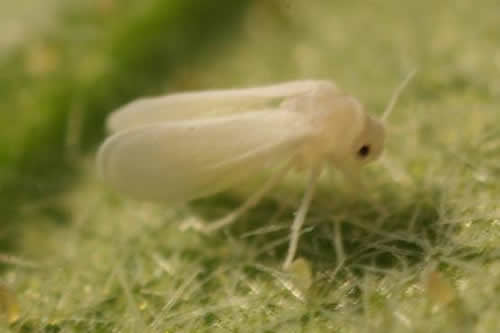
Cutting edge research by scientists at the Natural Resources Institute (NRI) on the whitefly, Bemisia tabaci, one of the most destructive agricultural pests in the world, is well represented in a recent issue of the Journal of Integrative Agriculture with five published articles.
The whitefly is known to transmit more than 115 different plant-virus species, making it one of the most serious plant-virus vectors in the world. Estimates for global pre-harvest losses due to pests and diseases are around 40% and whitefly and the viruses they transmit make a significant contribution to these losses. It is therefore a major threat to food and livelihood security affecting root crops, horticulture and cotton crops in the USA, Africa, India, South Asia, Australia and China.
These five new articles cover:
- Understanding whitefly systematics
- Transmission efficiency of tomato leaf curl viruses by different phylogenic groups of whitefly
- Next generation transcriptome sequencing and quantitative real-time PCR technologies for characterisation of the whitefly
- Resistance to the African cassava whitefly in African and South American cassava genotypes
- Socio-economic and scientific impact created by tomato varieties resistant to whitefly-transmitted, plant- virus diseases
Internationally recognized as whitefly experts, NRI staff have produced more than 70 scientific publications on whitefly and associated viruses since 2001. These scientists are members of the Agricultural Biosecurity and the Biodiversity and Molecular Biology Research Groups and they frequently host other international scientists with a common interest in whitefly and plant-virus research.
Research on whitefly began at NRI in the 1980s, when it was discovered that a whitefly resistant to pesticides was causing major problems for cotton crops in Sudan. More recent work has focused on overcoming the cassava mosaic virus in sub-Saharan Africa and the tomato leaf curl virus in India. NRI scientists are also working on a British species of whitefly commonly known as the brassica whitefly, Aleyrodes proletella. Their work focuses on the use of biological control methods, such as ladybird larvae and parasitoid wasps.
As well as developing methods and designing management strategies for whitefly and the plant-virus diseases they transmit, NRI staff have also documented the developmental impact of their successful research, showing how it has led to improved livelihoods of resource-poor farmers in the developing world.
Professor John Colvin of NRI will present his Inaugural Professorial Lecture on Thursday 31 May 2012 in Chatham, Kent on 'Insects, Plants and Viruses: Dynamic Interactions in a Changing World'. For more details click here.

